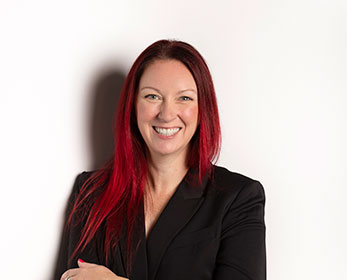A Vice Chancellor's Professorial Research Fellow, Professor Lemon has created the Citizen Wellbeing Scientist Project, an innovative, participatory research initiative. The project reimagines participants as "Citizen Wellbeing Scientists" – everyday individuals documenting, analysing, and sharing personal wellbeing practices through participatory visual methodologies.
Inspired by PhotoVoice – a research approach originally developed by Wang and Burris to empower communities with limited voice – Professor Lemon adapted the technique to explore how we visualise and perform self-care in daily life.
Professor Lemon explained that the project deliberately bridges the gap between wellbeing science and everyday practice, making these concepts accessible through multi-modal documentation.
"Self-care isn't just one big action, but rather a repertoire of small practices and habits that collectively develop, protect, maintain and improve our wellness.
"This residency explores how we translate wellbeing science into daily rituals and how documenting these practices can foster both personal empowerment and community connection."
Capturing self-care
The studio space functioned as both creative workshop and community hub, inviting public engagement throughout the residency. Members of the public were invited to document their own self-care practices and gain inspiration for everyday self-care.
Visitors became active participants, contributing their own visual interpretations of self-care through various photographic methods and dialogue. Together with Professor Lemon, participants co-designed and problem solved what self-care is in daily life, and how one might capture it.
"This participatory approach acknowledges that self-care, while personal, is also inherently relational," Professor Lemon explained.
"The documentation process creates a visual wellbeing literacy that transcends traditional text-based health communication, allowing diverse expressions across cultural, socioeconomic and linguistic backgrounds."
The project poses essential questions:
- How do we visually represent acts of self-nurturing?
- What role does documentation play in our commitment to wellbeing?
- How might sharing these visual narratives strengthen community resilience?
The collected multimedia artefacts form a growing archive of everyday wellbeing practices, challenging commercial wellness narratives by centering authentic lived experiences. This democratised approach recognises each participant's expertise in their own wellbeing journey.
Professor Lemon stated that by positioning participants as "scientists" of their own experience, the residency validates personal knowledge while connecting individual practices to broader wellbeing research.
"The resulting visual documentation serves multiple purposes – personal reflection, community inspiration, and contributions to our collective understanding of how self-care manifests across diverse lives," Professor Lemon said.
The PICA residency represents the initial phase of an ongoing project that will continue through community workshops, an online platform for anonymous contributions, and future exhibitions that celebrate the visual language of everyday wellbeing practices.
"This innovative intersection of participatory art, visual methodology, and wellbeing science creates space for meaningful dialogue about how we nurture ourselves and each other through small, daily acts of care – making visible what often remains unseen in our wellness journeys."
Professor Narelle Lemon is a Vice-Chancellor's Professorial Research Fellow in ECU's School of Education, where she leads the wellbeing and education research community and is leading the WA Government Department of Communities funded project called 'SheSpeaks' focusing on helping women grow their everyday self-care and wellbeing literacy.
Read more about the Citizen Wellbeing Scientist Project.

 Professor Narelle Lemon. Image credit: Shannyn Higgins.
Professor Narelle Lemon. Image credit: Shannyn Higgins.



